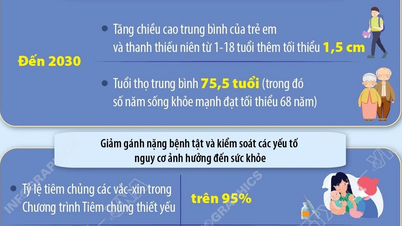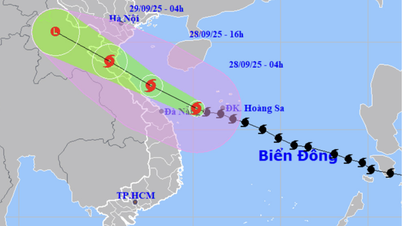On March 6, under the auspices of the German Consulate General in Ho Chi Minh City, Merck Healthcare Vietnam, in collaboration with obstetricians and gynecologists, organized a seminar on "Choosing Motherhood: To Have Children or Not to Have Children". The seminar aimed to discuss the current situation of declining birth rates; infertility; challenges that women face when deciding to become mothers...
"Running around" too much can lead to infertility.
Associate Professor - Doctor Hoang Thi Diem Tuyet, Director of Hung Vuong Hospital, shared at the discussion that unlike before, nowadays men and women in the country tend to get married late; after having a family, they delay having children. Because women today participate in many social activities, they want to spend time for themselves to study and advance in their careers.
Late marriage and having children are risk factors leading to infertility. Because after the age of 35, the ovaries gradually decline - a factor causing infertility; women at this age, when pregnant, have a higher rate of miscarriage.

Work pressure, life, environmental pollution... will affect sperm quality, risk of infertility.
In addition to getting married and having children late, according to Associate Professor - Doctor Diem Tuyet, all kinds of pressure from work, life, income, environmental pollution, diet... are also factors related to infertility. The above mentioned factors also affect and reduce the quality and quantity of sperm - evidenced through actual testing in couples undergoing infertility treatment.
There are many couples who "work" too much (do 2-3 jobs in the same day to earn extra income), which reduces intimacy and frequency of sex, thus reducing the chance of getting pregnant.
Associate Professor - Doctor Hoang Thi Diem Tuyet also added that reality shows that infertility is increasingly common among young couples (under 30 years old).
Currently, the general infertility rate in the world is about 10%; in Vietnam, this rate fluctuates from 7 - 10% among couples.
Declining fertility
The birth rate was also an issue shared by experts at the seminar. Accordingly, experts said that the decline in birth rates has many causes, such as: Increased pressure from work and life; increased costs of raising children, so couples are reluctant to have children; nowadays there is also a tendency to be single, or not wanting to have children; women are given the opportunity to study, develop, and participate in social activities; increased opportunities to access and use contraceptives, etc. also affect the birth rate.

Associate Professor - Dr. Hoang Thi Diem Tuyet spoke at the seminar
Dr. Josefine Wallat, Consul General of Germany in Ho Chi Minh City, shared that Germany has been facing a declining birth rate for many years, leading to an aging population and a shrinking workforce. This negatively affects the prosperity of the country and makes caring for the elderly more difficult…
Associate Professor - Doctor Hoang Thi Diem Tuyet said that the birth rate in the world and in Vietnam is gradually decreasing. The average birth rate of Vietnamese women in 2009 was 2.03 children/woman; but by 2024 it was only 1.91 children/woman (in Ho Chi Minh City alone, it was only 1.3 children/woman) - this number is lower than the world's replacement birth rate of 2.1 children/woman. Replacement birth rate means that when a couple (father and mother) die, there are 2 children to replace them.
Currently, 50% of countries have fertility rates below replacement level; by 2050, it is estimated that this will be 77% of countries.
To improve birth rates, experts say, it requires the joint efforts of the whole society - from couples and families; welfare policies, financial support for maternity, infertility treatment, and extended maternity leave...
Source: https://thanhnien.vn/ap-luc-du-thu-khien-cac-cap-vo-chong-bi-hiem-muon-vo-sinh-185250306183724838.htm




































![[Photo] Soldiers guard the fire and protect the forest](https://vphoto.vietnam.vn/thumb/1200x675/vietnam/resource/IMAGE/2025/9/27/7cab6a2afcf543558a98f4d87e9aaf95)
































































Comment (0)